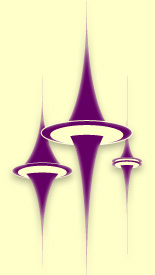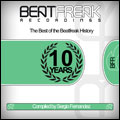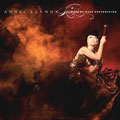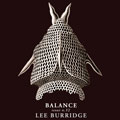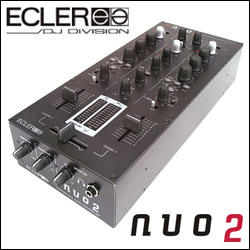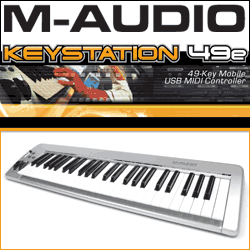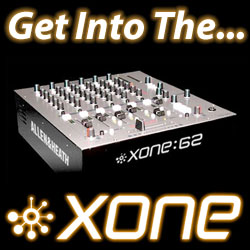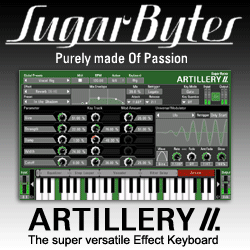|
|
|
|
|
|
|
|
|
|
|
|
|
||||||||||||||||||
|
|
|||||||||||||||||||
|
|
|
|
|
January 30, 2008 ../ 2008 FutureMusic Technology ReportMusic Technology Trends From CES, MacWorld & NAMMNow that the whirlwind of CES, MacWorld and NAMM is over, we're able to look back with some perspective at the three conferences that generally shape the technology landscape for the coming year. Being a music technology publication devoted to electronic music, we'll take a special look at the world of digital DJing.
CESAlthough, audio is a significant part of CES, the real action is on the video frontier, and the show was a pivotal turning point in the HD DVD VS. Blu-Ray battle. HD DVD had scheduled a press conference during the show, but was severely rattled by the sudden announcement by Universal that it was ending their exclusive agreement with the technology and would be selling Blu-Ray discs in the near future. The news was then further punctuated with Warner chiming in that they too would be offering Blu-Ray discs. The one-two punch buckled the knees of HD DVD who abruptly cancelled their press conference. A terrible decision. The press perceived the cancellation as a TKO, and declared Blu-Ray to be the winner of the HD format war. What HD DVD should have done was proceeded with their press conference without blinking. Either announce a special price cut on a new hardware/disc package, or trot out film industry experts to do a side-by-side comparison of the formats. Tired, but even if the announcements were "the same old story," it would not have appeared like the format had thrown in the towel. Shortly after the conference, HD DVD did announce price cuts, but again, the perception was that the format was having a final desperate fire sale, and purchases of HD DVD players plummeted. Blu-Ray is now officially the HD format winner.

MacWorldAs expected, MacWorld provided plenty of action for Apple aficionados. The biggest wow factor came in the form of the MacBook Air, which actually elicited screaming from the press corps attending the "Steve Show." Scary, we know, but Apple has got serious mojo right now. We all knew that an Apple sub-notebook (laptop under 3 pounds) was coming, but no-one was expecting Jobs to pull out a laptop from a large envelope. The Air is a thing of beauty and technological sophistication, incredibly thin and light with a full-size keyboard and 13 inch screen. However, upon further inspection, this is not high-powered portable that creatives are craving. Apple sacrificed too many features to make the Air a viable option for professionals on the move. The most notable omission is the Air's battery is self contained within the unit and cannot be removed or swapped out when power is running low. Apple claims the battery life is five hours, but that probably translates into four hours of real-world usage, and four hours is not going to cut it if you're on a productive tear with no power outlets in sight.The Air also lacks a DVD drive, which many users relish to enjoy movies while on the move. Apple does provide a cunning "remote" DVD solution that allows the Air to utilize another networked computer's DVD for software installation, but that's not the point. The other drawback is that the Air only provides one USB port. No Ethernet, no modem, no FireWire. Thus, after the initial rush of purchases by Mac technophiles, the Air is going to most likely disappoint Apple in the long run. There's a solid market out there for a compact laptop with professional performance. Apple is rumored to be readying a refresh of their MacBook Pro lineup for debut in the next few weeks. A fully-blown out 13" Pro model with an eye towards the creative professional will provide the Pro line-up with the shot in the arm it sorely needs.
NAMMCES and MacWorld are wonderful conferences, but for us, they're really just a warm up for NAMM. There were a number of significant announcements at the show, but the real action for gearheads was at the Spectrasonics booth. Eric Persing and company showcased their new Omnisphere synth that actually drew cheers from the crowd during the demonstration. The possibilities for electronic musicians are staggering, not just for the incredible sound quality, but also because you can apply rhythmic grooves from RMX to the Omnisphere's arpeggiator. Omnisphere's engine utilizes both synthesis and samples to create jaw dropping sonic landscapes that seem to take on a life of their own. The only bad news is that we're going to have to wait until September 15th to get in on the action.Akai geared up for the big game by dropping the MPC5000, their new flagship MIDI Production Studio that now features a virtual analog synthesis engine. The announcement took some of the wind out of the Dave Smith / Roger Lynn collaboration, now dubbed the LinnDrumII Analog. The innards of the MPC have been completely revamped with a new sampling engine, the aforementioned 20-voice, 3-oscillator analog synthesizer with arpeggiator, a new sequencing engine with 960 ppq resolution, and a new effects processor. At $3500 bills, it's a lot of bread to drop on a all-in-one production box, but to fans of the concern it stated in a big way that Akai is back.
The biggest trend of the show was again DJ controllers. Just when you thought that the market was completely saturated with MIDI controllers aimed at mixing, a half-dozen new models were announced by Vestax, Stanton, Numark, EKS and others. If one stands back and looks at the MIDI DJ controller market from afar, you can gain an interesting perspective into where the industry is headed.
Yet, several manufacturers chose to trot out the same tired design. The SC System by Stanton pretty much sums up what we're talking about here. Stanton's new system is sleek and well designed, but it's anything but groundbreaking. In fact, the company embarrassed themselves by stating publicly that their new SC system was in development for four years. Four years to develop a wheel and a mixer? This is the new millennium kids. If a company the size of Stanton takes four years to drop, what in essence is a product that falls short to what already exists in the marketplace, then they should get out of the game.
EKS, a small concern from Finland who made a small splash a number of years ago with their XP10 mini controller/soundcards, but failed to gain major mixing software support, showcased a mockup of their new OTUS DJ controller that points the turntable analogy into the future. Now the product is still vaporware, basically a nice plastic model, but it does demonstrate that at least some companies are doing some forward thinking. Preliminary features include: a quality built-in sound card, one main turntable wheel, 4 mini jog wheels, a track pad, a ribbon controller, and Wii-like motion sensors. Even the chassis was something different. Exciting stuff for sure.
Not only do you have to decide what controller to use, but also what software works best for the type of mixing you perform. Each platform/interface has its advantages and disadvantages, but one thing is for sure, if you're looking to rock a club, you want portability. Seems like a no-brainer, but if you look at some of the controllers out there, this obviously wasn't high on the list of priorities. In addition, no one is offering a comprehensive protective case solution. If you're a manufacturer like Numark, and you're about to drop a sweet little NS7 setup into the market, then you sure as hell should offer the sexiest case alive. Inspiration? If "Q" from James Bond fame was going to design your case, what would he do? When you walk into a club with a case that looks like it came from the future, punters are going to take notice. The case should come with the rig, not cost extra, feature illumination, so you can see what you're doing in a dark club, and have a prominent, yet not overwhelming glowing logo on the outside. Perception is reality.
DJing, as we know it, is experiencing a paradigm shift. Sure there will always be stalwarts who will only mix using turntables and vinyl, but the real action is in the digital realm. Serato's Scratch was the perfect "bridge" from the vinyl world to the digital, but even Serato knows that the future lies in software and controllers. So where does this leave the consumer? Confused. If you're a consumer surveying the digital DJing landscape at this point in time, your choices are daunting. And questions about your approach could end up paralyzing your decision making process. Should I honor the history and the art of traditional mixing by purchasing turntables and a mixer? Or should I look to the future and jump into purely digital mixing? So what's going to be the determining factor? Price. In the end, the consumer's decision is going to be based on price with feature set, perceived value and brand allegiance as trailing factors. Many of the aforementioned manufacturers didn't release official pricing on their systems, probably a good thing since sticker shock is not a reaction you want at a convention for retailers, but the reality is, none of them will come cheap. 2008 will be a pivotal year, ultimately determining who becomes a star, who stays in the game and who is reduced to a footnote in the history of DJing.
>>> Back To Digihear?
Copyright © 2007 FutureMusic® All Rights Reserved. |
|
|
News Archives
|
|
|
|
|
|
|
|
|
|
|
|
|
